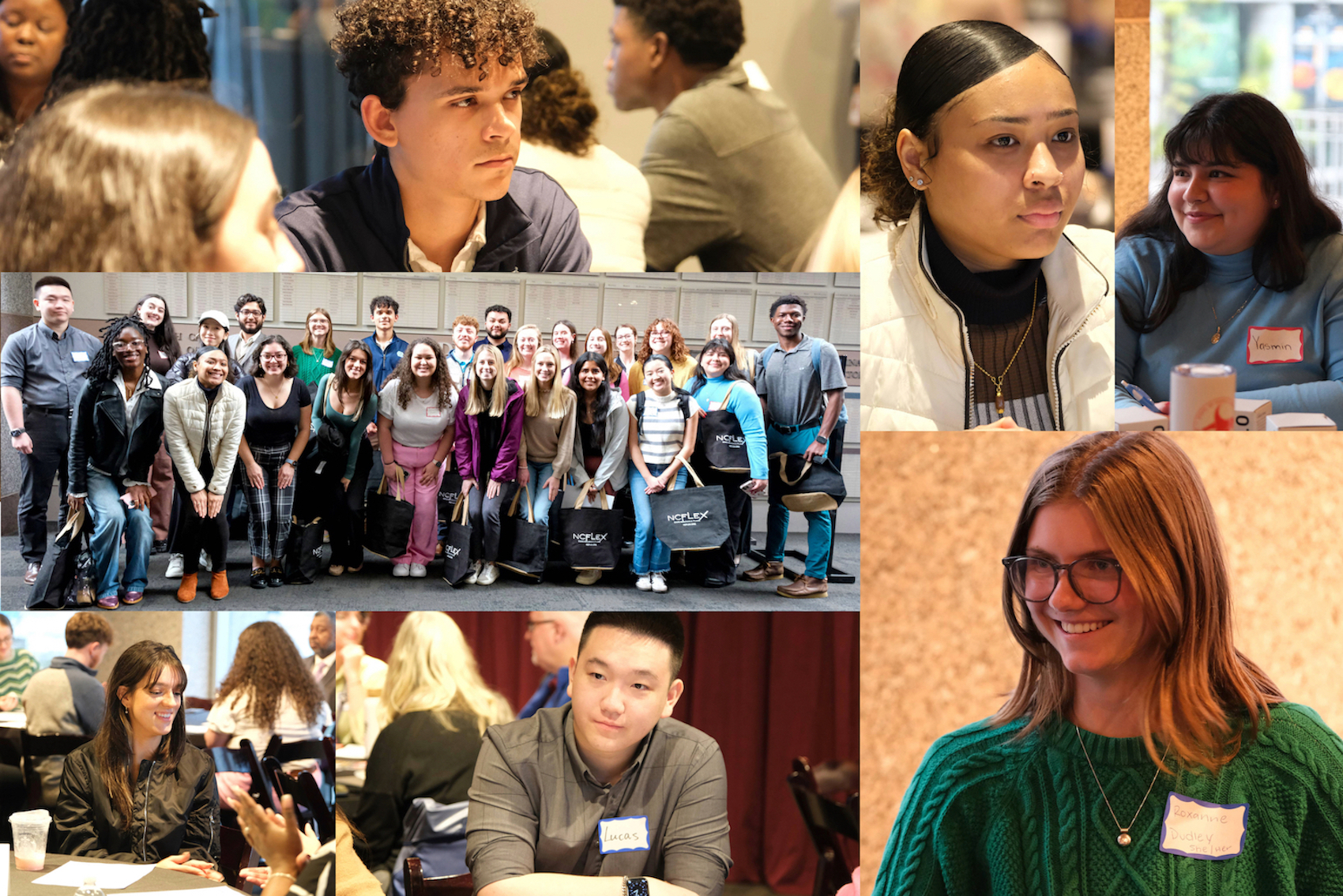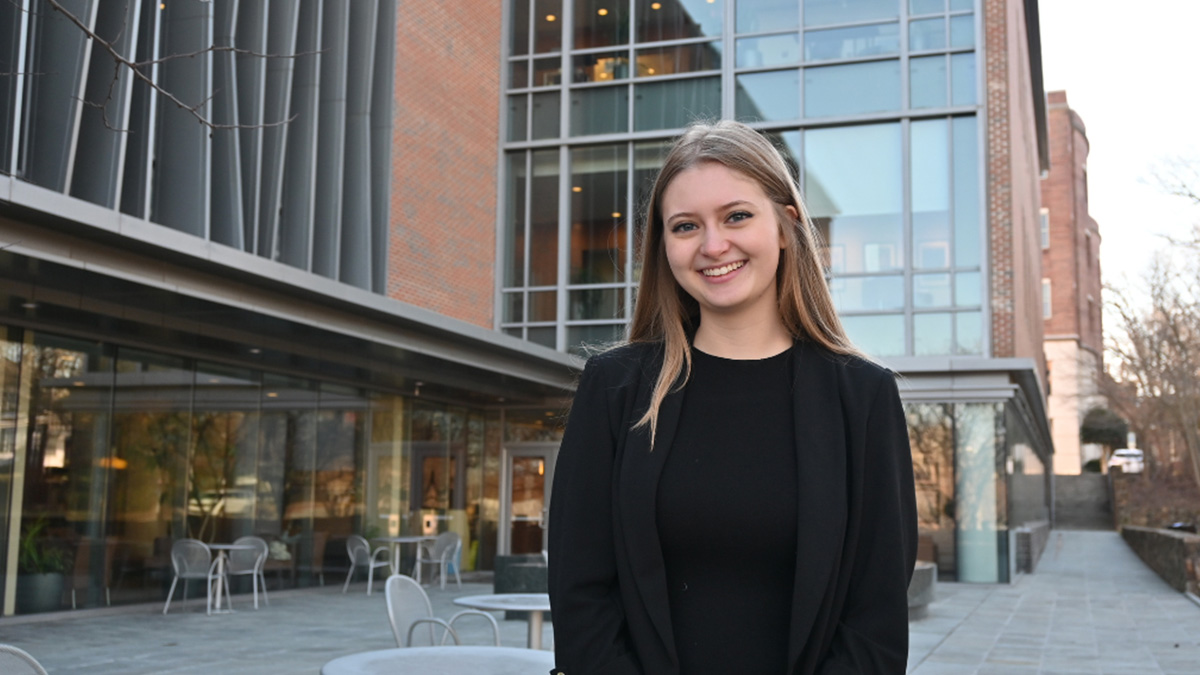Sharing Black history and culture
Senior Saskia Staimpel has expanded her interests in Black student activism through undergraduate research and a fellowship at the Sonja Haynes Stone Center for Black Culture and History.

Saskia Staimpel lived all over the world — Argentina, Venezuela and Thailand — before her family moved to Fayetteville, North Carolina, right before she started high school. She speaks Spanish fluently (her mother is from Ecuador).
She applied to a lot of colleges but was drawn to Carolina because “I really wanted to be in a place where I could thrive and be challenged.” Staimpel said she initially wanted to major in biology. But her global interests, combined with classes in Black history, led her to double major in African, African American and diaspora studies and global studies (with a focus on international politics and Latin America).
She was captivated by classes on slavery in the United States led by Robert Porter and classes on the Black Power Movement and intellectual Black history led by Claude Clegg, AAAD department chair. Her paper, “Rebellious to Revolutionary: SNCC and its Transformative Activism,” was published in the department’s undergraduate research journal, Global Africana Review.
“I loved the material, and it was so completely new to me. It took me awhile to change majors, but everything came full circle, and with the encouragement of my professors, it became clear where my passions lay,” said Staimpel.
At Carolina, Staimpel has been involved in intercollegiate cheer and with the Criminal Justice Action and Awareness organization, where she has worked to bring awareness to the ways the criminal justice system disproportionately affects Black people and their communities. She is deeply committed to social justice issues and served as the Sean Douglas Fellow at the Sonja Haynes Stone Center for Black Culture and History. There she led a project to develop plans for transforming the basement of the center into a space for performances and for Black organizations to meet.
She said the fellowship allowed her to help “illuminate Black history and culture … in various ways through the center’s programs.”
Staimpel said she felt blessed to have the support of family while dealing with a global pandemic during her Carolina journey.
“I was privileged to have parents and a husband that I could lean on for strong family support,” she said.
After graduation, Staimpel plans to take a break before applying to graduate school. She wants to pursue a Ph.D. in history and teach at the college level.
When she thinks about wrapping up her academic journey, Staimpel says she will miss special places like the Coker Arboretum on campus and the small-town feel of Chapel Hill.
“It’s going to be surreal — oh my gosh, I can’t imagine it,” she said. “I have really loved the classes in my global studies and AAAD majors.”
Carolina has allowed her to grow and change and to feel comfortable with that process, she added.
“Carolina was there for me, giving me that space to pursue my interests and to become a young adult,” Staimpel said. “It really helped me to develop my beliefs as an individual, and I’m grateful for that.”




